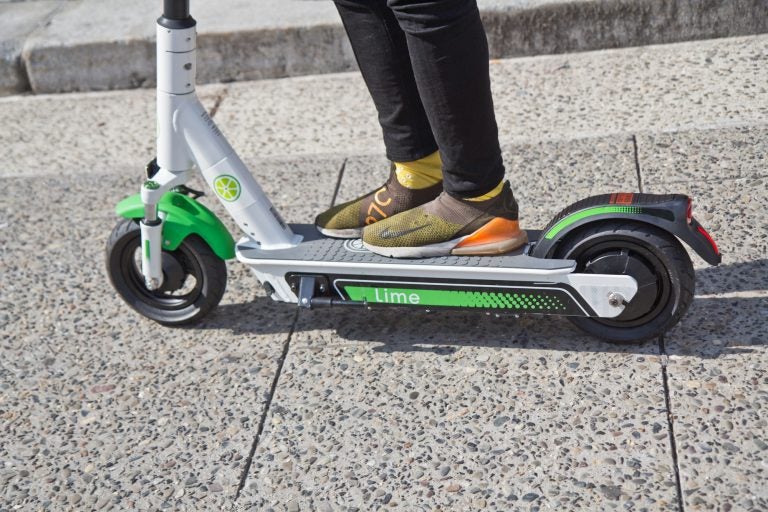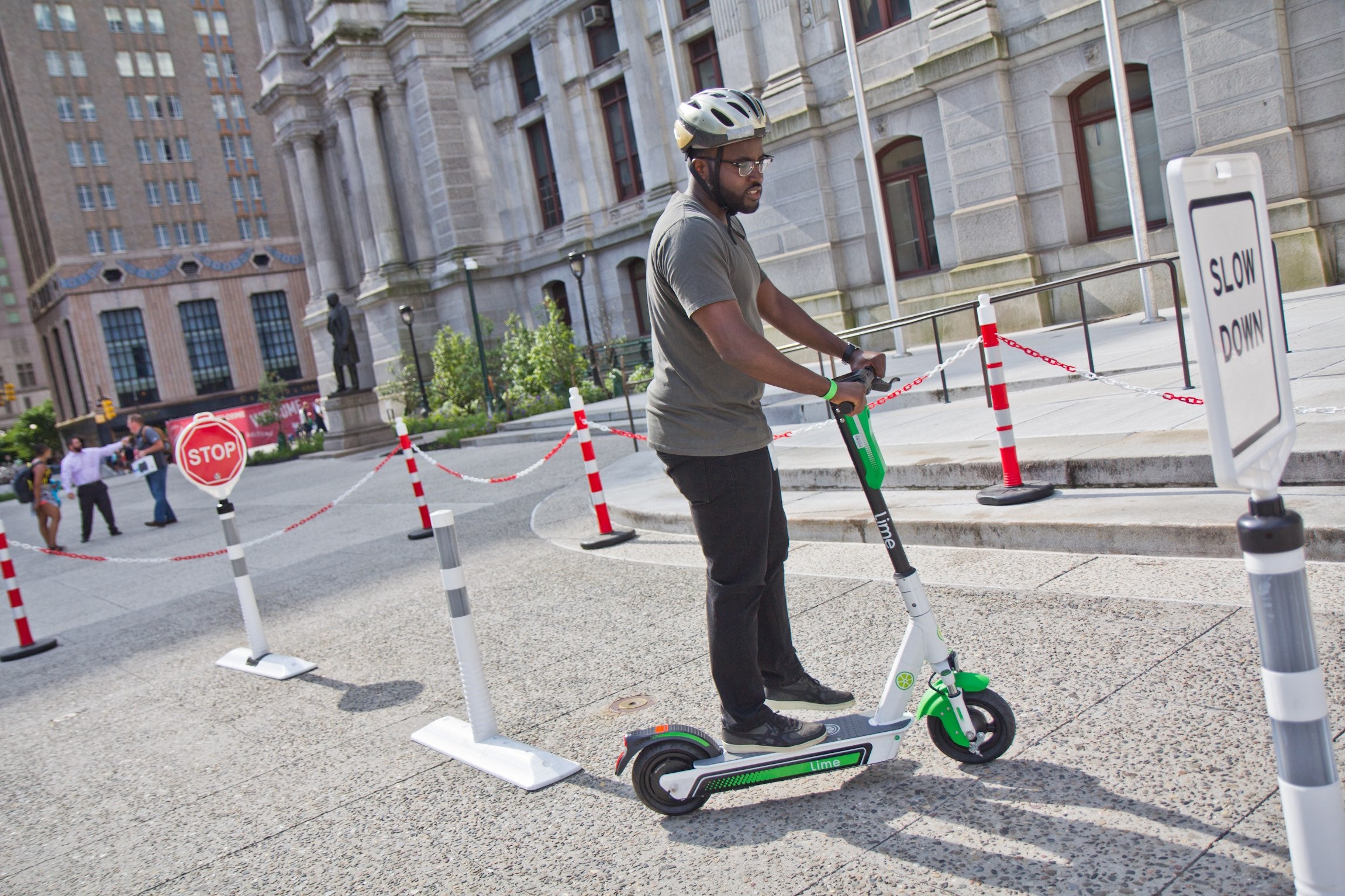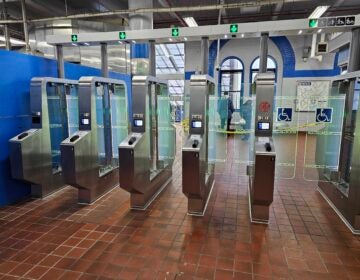This e-scooter wants to defeat Philly’s potholes
E-scooters aren’t street legal in Philly but that isn’t stopping Lime from rolling out a brawnier model designed to withstand rough city streets.

Riders were invited to test drive the Lime scooter at City Hall in Philadelphia. (Kimberly Paynter/WHYY)
This article originally appeared on PlanPhilly.
—
Philadelphia’s rough streets may demand a brawnier breed of e-scooter.
The electric gliders, known for their slim profile, aren’t even street legal in Pennsylvania but that isn’t stopping one company, Lime, from rolling out a new 60-pound model designed with rough city streets in mind.
The Lime-S Gen 3 scooter boasts a heavier frame, wider footboard, front and back brakes, shock absorbers, and 10-inch wheels.
“As well as anything can withstand these mean Philly streets, I think our green guys are ready for it,” Shari Shapiro, the company’s director of Mid-Atlantic government said on Thursday at a public demo of the devices at City Hall. The company is one of several likely to eventually compete for a limited number of licenses to operate in the city.
On smoothe ground, Lime’s ride isn’t too bad from the perspective of a 5’10, 210-pound male. Just kick start, and let the breeze caress your face. But there’s no telling if the scooter can truly take a pounding from the pavement. Not even this reporter could get the green light for a test ride on Philly streets.
That could change by fall if legislation introduced in Harrisburg gets the votes needed to legalize e-scooters. But even if the bill makes it out of the statehouse, it’ll be some time before the devices are zipping through Philly. City officials recommended taking a year to study safety and other “benefits and risks” at a hearing in February.
“We’re not going to be moving particularly speedily,” Aaron Ritz, transportation systems manager for the city’s Office of Transportation, Infrastructure, and Sustainability, said Thursday. “We’re going to be moving thoughtfully and carefully as we consider a new transportation option. We recognize that everything is more complicated once you get past the surface level.”

A recent study of scooter users in Austin, Texas found a third of 190 riders who reported being injured on scooters were injured during their first ride, and 29% had drank alcohol in the 12 hours prior to getting hurt. Of these 190 injured riders, 48% suffered injuries to the head, 15% of which suffered brain trauma. The study said these were preventable, as only one out of the 190 was wearing a helmet when the injury occurred,
Shapiro acknowledges that accidents happen on e-scooters but said the peril is no comparison to cars, the “the most dangerous and most deadly” vehicle. There are simple ways to prevent injuries, she said.
“Be safe, wear a helmet, follow the rules of the road, don’t drink and scoot,” she said.
Scooter advocates argue that the devices reduce car use, A study touted by industry representatives found that 34 percent of Portland users took e-scooters as an alternative to a car, taxi, or ride-hail, reducing congestion and the dangers posed by traffic.
For now, area residents can legally scoot in New Jersey if they’re willing to travel to Hoboken, where their e-scooter pilot program featuring Lime and OjO Electric has logged over 20,000 rides since May 21.
WHYY is your source for fact-based, in-depth journalism and information. As a nonprofit organization, we rely on financial support from readers like you. Please give today.







